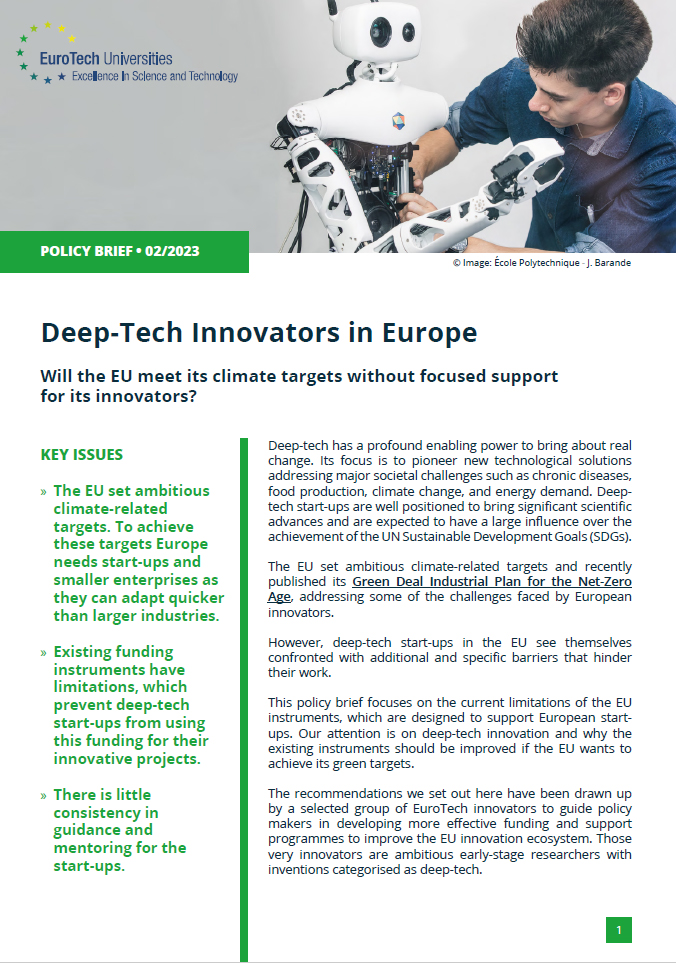28 February 2023 | Deep-tech has a profound enabling power to bring about real change. Its focus is to pioneer new technological solutions addressing major societal challenges such as chronic diseases, food production, climate change, and energy demand. Deep-tech start-ups are well positioned to bring significant scientific advances and are expected to have a large influence over the achievement of the UN Sustainable Development Goals (SDGs).
The EU set ambitious climate-related targets and recently published its Green Deal Industrial Plan for the Net-Zero Age, addressing some of the challenges faced by European innovators.
However, deep-tech start-ups in the EU see themselves confronted with additional and specific barriers that hinder their work.
This policy brief focuses on the current limitations of the EU instruments, which are designed to support European start-ups. Our attention is on deep-tech innovation and why the existing instruments should be improved if the EU wants to achieve its green targets.
The recommendations we set out here have been drawn up by a selected group of EuroTech innovators to guide policy makers in developing more effective funding and support programmes to improve the EU innovation ecosystem. Those very innovators are ambitious early-stage researchers with inventions categorised as deep-tech.






